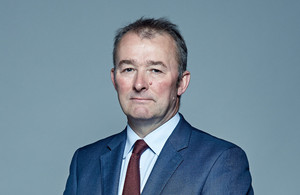Calling on private financial institutions to commit to net zero
Good afternoon.
And thank you to the Lord Mayor for organising this event.
We last shared a platform at The Guildhall in February for the launch of the COP26 Private Finance Agenda.
And it was during the first two weeks in my new roles as Business Secretary and COP26 President Designate.
Where we were living in a very different world then.
As I speak to you during the first week of our new national restrictions we know all too well the damage the coronavirus pandemic has caused.
Both human and economic.
But though our circumstances have changed immeasurably. The challenge I set out when I spoke to the financial sector in February remains the same.
There is an urgent need to raise global ambition in reducing our emissions, building climate resilience and reaching a net zero global economy.
And finance has a pivotal role to play.
If we are to increase green global investment from the billions to the trillions, all finance must align with the Paris Agreement.
As someone who previously worked in finance, I am really proud to say that this sector is rising to the challenge.
Since I spoke to you in February, major financial institutions have come forward with ambitious commitments.
This week M&G plc committed to become net zero by 2050. Over the past two months, the likes of HSBC, JP Morgan, and Morgan Stanley have made similar commitments. Whilst, in October, the BT Pension Scheme announced it will reach net zero by 2035.
The Net Zero Asset Owners Alliance includes some of the world’s largest pension funds and insurers.
And now represent over 5 trillion dollars in assets. Up 1 trillion dollars from last year.
And today, the UK government has endorsed proposals from the IFRS Foundation to develop global sustainability standards.
Helping to achieve consistency across the world.
We have come a long way.
Particularly in the past year.
But we know there is more to do.
The next decade is absolutely critical.
Avoiding the worst effects of climate change means rapid decarbonisation and increased resilience.
To remain in-line with the Paris Agreement, we must reduce our emissions up to five times quicker over the next ten years than we have over the past twenty.
We must finance the transition to net zero before it is too late.
That is why we are making international finance a central theme of our COP Presidency.
Last year, the Prime Minister announced that the UK would double its international climate finance to £11.6bn between 2021 and 2025.
And on the 12th December the UK will, alongside the UN and France, co-host an ambition summit, with Italy and Chile.
We are calling on countries to come forward with new commitments on finance.
So that together, we can meet and exceed the goal of mobilising $100 billion a year for developing countries.
And in the run-up to COP26, we also want more companies to disclose climate risk in their financial reporting.
Yesterday, the Chancellor announced our plans to achieve widespread mandatory TCFD reporting by 2023.
This is a major step forward for transparency of the largest UK companies, financial institutions, and pension funds.
And we want to see more commitments ahead of COP26 that reflect the urgency of the situation we face.
Commitments that change the future of financial flows.
And that actively support the transition to zero emissions.
So I leave you with one message: join the Race to Zero.
Commit to net zero by 2050 at the latest and publish a clear plan for how to get there.
Please do it now.
Because we do not have time to waste.
Together, with your knowledge and expertise, we can finance the move to our green global future.

